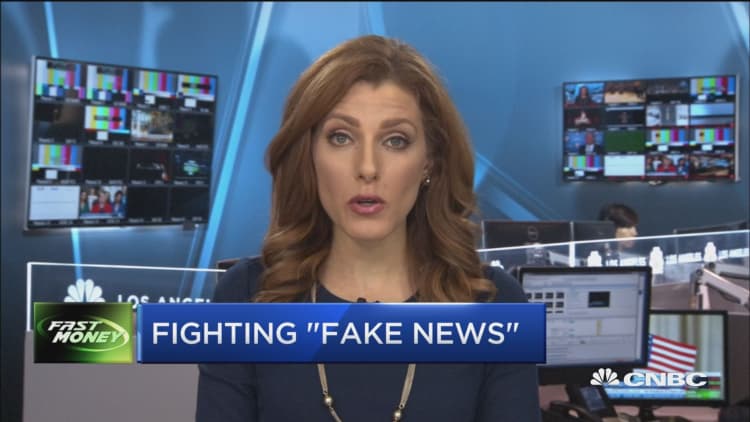
At the close of 2016, controversies about fake news won't quit.
On the heels of Kellogg and other big brands pulling their ads from Breitbart, brands are questioning whether they want to be associated with controversial or extreme political content.
Sources tell CNBC that across the advertising industry agencies are meeting with clients and their ad tech partners, and brands are looking for more control over where their ads are placed.
One company, Kargo, is positioning itself as a solution. The mobile ad company puts brands' ads on 300 premium mobile news sites and apps from 70 media companies, ranging from The New York Times and NBCUniversal's properties, to Hearst and Vice.
The company promises its clients that their ads will be seen, but perhaps just as importantly, Kargo is ranked in the top 1 percent for brand safety, as measured by Integral Ad Science.
"The reason that people advertise in Times Square and the Super Bowl is because those contextually right places really lift the brand," said Kargo CEO Harry Kargman of the company's focus on premium. "I think when you look at digital advertising, especially on mobile, finding great editorial places to run is super important."
Kargman, who said the company turns down 9 out of 10 publishers who approach it, said he's seen an uptick in brands that want to double down on advertising around premium content, and he expects revenue to increase by about 50 percent in the first quarter.
"What we're seeing is a flight to quality, people asking tougher questions like 'Who are your publishers?' 'What is the quality?' 'What is the experience on the screen?'" said Kargman. "With those tougher questions there's going to be an influx of advertising to us."
MediaLink CEO Michael Kassan sees premium digital content companies like The New York Times benefiting from a rise in advertising. The publication has also seen a boost in subscribers in the wake of the election. He also says all of the swirling questions about fake news and questionable content could send advertisers back to traditional TV networks — NBC, ABC, Fox and CBS — both their traditional TV and their digital properties.
It's a flight to what you know.Michael KassanMediaLink CEO
WPP's media investment operation, GroupM, says it's been focused on brand safety and has been working to "eliminate fraud, cut off support to content pirates, and protect our clients from inappropriate adjacencies."
"It's a flight to what you know," said Kassan.
While Facebook and Google have been blamed for enabling the proliferation of fake news, both have said they're working to crack down on it. And GroupM says it's working with them on it. "We will support the work of Google, Facebook, Twitter and others to minimize the possibility of advertising funding the fakers," GroupM said in a statement.
It "just goes to show that new and social media companies are really media companies, not technology companies," said Sir Martin Sorrell, CEO of GroupM parent WPP.
Of Facebook, Twitter and other digital and social media companies, Sorrell said, "They're responsible for their content, just like 'old' media are. (New media companies) can't deny that responsibility."
Disclosure: NBCUniversal is the parent company of NBC and CNBC.



